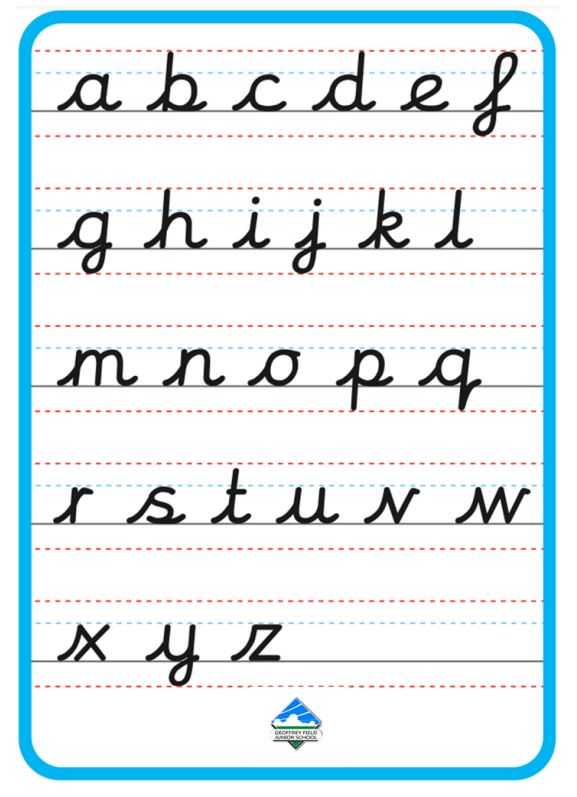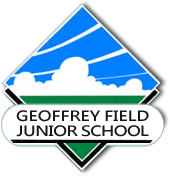English
Reading Curriculum
Intent:
Learning to read is a fundamental part of any child’s education as they require these skills to be able to access all areas of their learning and to prepare them for the next stage in their life. Reading is given a high status at Geoffrey Field Junior School. We aim to provide the children with a reading curriculum that enables them to become fluent, critical and avid readers. The children are taught the skills they need to decode (read the words on the page) as well as develop their fluency (speed and accuracy) and comprehension (understanding of the text). In addition to this, we also aim to instil the children with a love of reading.
We aim to provide our children with a challenging and ambitious reading curriculum based on carefully selected, high-quality whole class texts. Our goal is that reading has purpose and is used as a tool for learning across subjects, giving reading significant importance at Geoffrey Field Junior School.
Implementation:
At Geoffrey Field Junior school, we have developed our own Literature Spine which forms the basis of the texts pupils at the school will study during their time with us. These texts have been carefully chosen with a clear rationale to ensure that pupils are exposed to a diverse range of authors, genres and challenge. Reading is entwined within the wider curriculum and used as a tool for learning.
For those that are at the early stages of reading, high-quality and systematic teaching of phonics plays a central part and is considered of upmost importance. We use the Read Write Inc programme to teach phonics in small groups and aim for all pupils to be secure in their phonics knowledge as quickly as possible. Regular, accurate assessments of phonics enable us to quickly identify gaps in the children’s phonics knowledge and teaching is then tailored to suit the children’s needs. Whilst children are learning phonics, their reading books are phonetically decodable and closely matched to their phonetic knowledge. This allows the children to further practice and embed new skills.
Fluency forms an important part of our reading lessons across the year groups. We strive to ensure that children are able to decode the words on the page but are also able to read these quickly, accurately and with expression. In lessons, we explicitly teach how to read the text through a range of activities such as choral reading, echo reading and text marking. This may take place as a whole class or small groups, depending on the children’s needs. This enables the children to develop their fluency so that they are able to understand and enjoy what they are reading.
We use Whole Class Reading when children’s phonics knowledge and reading fluency are secure. Here, reading is taught through ambitious whole class texts, which have been deliberately selected to enable pupils to experience a wide variety of texts from a diverse range of authors. These texts become increasing more challenging as the children progress through the year and across the school.
At Geoffrey Field Junior School, the National Curriculum reading objectives have been split up into seven areas known as assessment focuses (AFs) and are explicitly taught. These can be found below. These AFs can be further broken down into key skills. The children become very familiar with these as each reading lesson is taught with a clear AF and skill. We have developed posters for each AF that are displayed in the classrooms and are referred to in the lessons. Progression is built within and across the year groups through the range and difficulty of the texts we use with the children as well as with the tasks that they are required to do.
All year groups have an Author of the Term to further expose the children to a range of authors within their time at Geoffrey Field Junior School. Where possible, these are linked to the books that the children are studying. Children are also able to listen to their teacher read a high quality text from our Literature Spine for further exposure to good writing but also for enjoyment. All staff at the school share the books that they themselves are reading with the children and recommend books to them too. This promotes a culture and love of reading at the school.
It is important to us to include parents/carers in their children’s reading journeys. We encourage the children to practise reading both at school and at home. Each child is able to take home a book at their appropriate level to read at home as well as a library book which they can choose at any level to enjoy. The children are also set up with their own Bug Club account so they are able to access a range of e-books at the
appropriate level at school and at home. This allows additional opportunities for children to practise their reading as well as share books for pleasure.
Writing Curriculum
Intent:
At Geoffrey Field Junior School, writing is an essential part of the curriculum. We aim to give the children a writing curriculum that enables them to become confident, creative and independent writers, who are able to articulate their own ideas effectively. We want the children to leave us as competent writers who are ready for the next stage of their education.
We strive to create exciting and stimulating writing opportunities for all children. We use carefully chosen books, short films and poetry to inspire writing, and children are given the opportunity to write in a range of contexts, for different audiences and purposes. Our goal is that the writing curriculum is progressive, within and across the years, and gives the children a chance to learn, practise and embed new skills. We support the children to develop transferable skills which they can use across the curriculum and throughout their lives.
Implementation:
Writing lessons at Geoffrey Field Junior School are often referred to as Literacy. We use deliberately selected books, short films or poetry to inspire the children’s writing, and children are encouraged to write for a range of contexts, purposes and audiences. Within and across the years, our writing curriculum gives children the opportunity to revisit and embed new learning.
Each writing unit is carefully planned, taking into consideration prior learning. Writing units include the explicit teaching of all aspects of writing: planning, drafting, redrafting and editing. Where appropriate, children have the opportunity to present / publish their work. Within a writing unit, the children will use the book, film or poetry as a stimulus for writing. They will write shorter as well as longer pieces of writing for a range of contexts, audiences and purposes. This will increase in complexity as the year progresses and as the children move through the school.
Writing lessons include the explicit teaching of the grammar objectives. We aim to teach these in context so that the learning can then be applied within their writing. When necessary, grammar is taught discretely with the goal that children will then apply this in their own work. We have developed our own grammar progression documents at Geoffrey Field Junior School using the National Curriculum. This ensures that progression is built within and across the year groups through the range and difficulty of the skills being taught. The children have multiple opportunities throughout the year to revisit the grammar objectives in order to secure the knowledge and to be able to confidently apply the skills to their own writing. These skills are then revisited and built on in subsequent years.
We have used the National Curriculum to devise our own composition progression documents. This has clarified the creative writing techniques that the children need to learn to compose their own writing effectively. This ensures a clear progression across the school and numerous opportunities are provided for children to revisit and consolidate learning.
It is important for children to be able to write fluently and legibly. Handwriting is therefore taught in each year group, following our whole school handwriting model (see image below).

In year 3 and 4, the children have regular handwriting lessons where handwriting is explicitly taught and modelled by the teacher. For those that need it, additional time may be dedicated to handwriting lessons in small groups so that the children have enough practise to secure these skills. In year 5 and 6, handwriting is taught in small groups and targeted to those that still require it. At the school, we have developed our own handwriting scheme that we use to teach the children.
For the children that are at the early stages of writing, as well as regular handwriting lessons, dictation is also used. Dictation enables the children to learn the foundational skills needed to write independently. Children are taught to form letters correctly and to use their known phonics knowledge to write words, building up to sentences. Regular assessments enable us to quickly identify gaps and teaching is then tailored to suit the children’s needs. Our goal is for all pupils to secure the foundational knowledge needed as quickly as possible.
